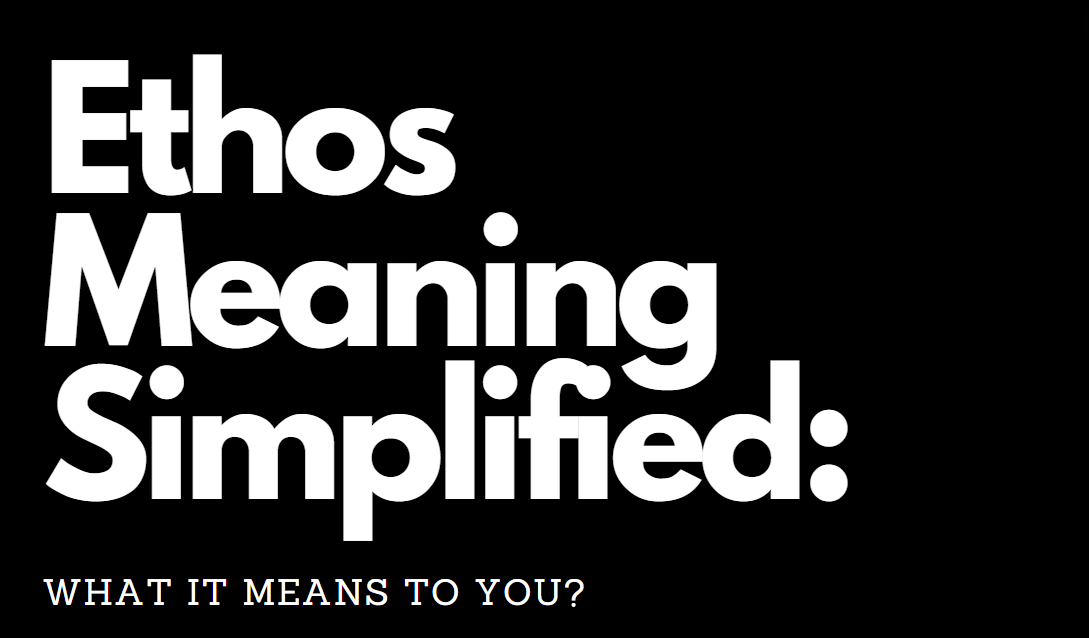You must have heard this term. Generally speaking, whether giving speeches, writing essays, communicating, or just talking. the word ethos certainly does come up. Now, what does that really mean?
Let’s break it down in simple terms.
Meaning 1. Ethos in Rhetoric
In rhetoric, ethos is the term recognizing the credibility or character of the speaker/writer. It is one of the three modes of persuasion, alongside pathos or emotion and logos or logic, agreeing to the recognizable proof made by Aristotle.
Ethos goes to assure your audience that you are trustworthy, know what you’re talking about, and are clear on moral matters to which they should be willing to listen.
Example: A doctor giving a health seminar would use his medical degree and years of experience to establish ethos, assuring the audience they can trust his advice.
Meaning 2. Ethos in Philosophy
In philosophy, the term ethos can also mean those directing beliefs or standards that characterize a community, country, or philosophy. It is around ethical values and social norms which characterize the way of life of a group.
Example: The ethos of democracy emphasizes values like freedom, equality, and justice.
Meaning 3. Ethos in Branding
In marketing and branding, ethos can be defined as the character or identity of a brand. It is the personality that a brand portrays to its audience, often through messaging, design, and interaction with customers. A solid brand ethos allows easy building of loyalty and trust in consumers.
Example: Innovation, simplicity, and premium quality can be seen through every part of Apple’s ethos, which speaks directly to its audience.
Meaning 4. Ethos in Workplace Culture
In other words, ethos in a working environment may mean the prevailing attitudes, views, and behaviors that define the organization’s culture. It is about the way things are done and the principles held by the employees and the leadership of the company.
Example: A company with an ethos of cooperation supports teamwork, open communication, and shared success.
Meaning 5. Ethos in Literature and Art
In literature and art, ethos is used to refer to the implied moral attitude or character of something. It is the ethical perspective that underlies the telling of a story, the action of the characters, or the message conveyed by art.
Example: The ethos of an authoritarian novel can reflect a feeling of pessimism and serve as a warning, and an expression of the author’s concern for society.
Meaning 6. Ethos in Religion
Ethos, in religious contexts, is the moral and ethical measures connected to the actions of believers. It is fundamentally all about living in harmony with what a certain religion teaches and considers important.
Example: The Christian ethos includes compassion, modesty, and forgiveness.
Conclusion
The word “ethos” possesses a number of meanings based on the context in which it is used, its very basic grounding in rhetoric to branding, culture, literature, and religion. Each of these varied uses of ethos can help clarify how ethos affects different facets of life and communication.
From building credibility with people and defining cultures to forming brand identity, ethos proves to be a strong concept that plays an important role in how we perceive and interface with everything that surrounds us.
Let’s Read More:
ROFL Meaning Explained: The Funniest Slang in Internet Culture
